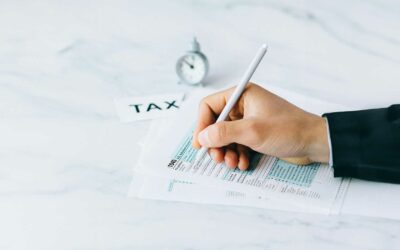
Have you made the most of your ISA allowance for 2018?
Remember, you have until the end of the tax year to invest up to £20,000 in ISAs. But if you don’t act before April 5th, that allowance is lost for good.
Of course, you will have another £20,000 allowance in 2019/20. That means you could invest up to £40,000 over the next few weeks, or £80,000 if you invest as a couple.
The question is should you, and what is the best way to do it?
Should you have an ISA?
Most types of savings and investment are subject to tax, sooner or later. Although the personal tax allowance makes it easier to enjoy the interest from smaller savings pots free from tax, as soon as you earn more than £1000 interest a year, the taxman will take a share. He will start even sooner if you are a higher rate taxpayer.
With an ISA, the taxman cannot help himself to your money. All the interest, income and capital gains generated in your ISA remain yours. It means that an ISA is a simple and tax-efficient way to potentially grow your wealth.
So the answer to the question ‘should you have an ISA?’ for most people is definitely ’yes’.
What kind of ISA should you have?
Since they were introduced in 1999, a whole family of ISAs has grown up, providing a solution to all types of investment needs. You can have more than one, but all are subject to the £20,000 overall allowance.
Cash ISA
Cash ISAs are simple savings products. They are open to anyone over the age of 16, and although the rates of return may not be very exciting at present, your money is completely safe provided it’s a UK regulated provider and you have under £85,000 saved. Putting cash in an ISA means you can protect it for the long term. You can transfer it into a Stocks and Shares ISA for the prospect of greater returns if you wish.
Stocks and Shares ISA
Stocks and Shares ISAs are an easy route into investment. Your money will be invested in a shared fund, and you can choose the fund to suit your approach to risk.
To take out a Stocks and Shares ISA you will need to be 18 or over. Many people use them to build up wealth for goals like children’s university fees or to supplement their pension.
Junior ISA
Junior ISAs are intended for children and young people and both Junior Cash ISAs and Junior Stocks and Shares ISAs are available for under 18s. The child and others can contribute up to £4,260 each year. No withdrawals are allowed until the child turns 18 when they can take out the money, or convert it to an adult ISA.
Help-to-Buy ISA and Lifetime ISA
The Help-to-Buy ISA was designed to help people over 16 save towards buying their first property. They let you put in up to £1,200 in your first month and £200 a month thereafter to build up a maximum of £12,000.
What makes the Help-to-Buy ISA rewarding is that as well as interest, your savings earn a government bonus of £1 for each £4 you put in when you purchase the property. So you could get a £3,000 bonus.
New accounts can be opened until November this year.
Lifetime ISAs are set to replace the Help-to-Buy ISA. They are open to those between 18 and 40, and allow up to £4,000 to be saved each tax year. Like the Help-to-Buy ISA they offer a government bonus of 25% on savings, but as well as buying a home, they can be used to fund retirement.
There’s an exit penalty of 25% if funds are withdrawn before the age of 60, unless they are used to buy a first home worth up to £450,000.
Innovative Finance ISA
Innovative Finance ISAs allow the tax advantages of ISA investment to be combined with peer-to-peer lending. Anyone over the age of 18 can invest up to £20,000 in an approved provider, and enjoy the interest generated by the loans free of tax. The risk may be higher than other ISA investments, although they may offer attractive returns.
Finding out more
Most people may be better off with an ISA, or a combination of ISA products, because of their tax efficiency. Even if you cannot afford to invest £20,000 every year, making the most of your entitlement, and possibly making monthly contributions could help you grow your money.
With the new tax year coming up, now is the time to find out just what an ISA can do for you.
Download our expert guide to savings & investments and talk to your Continuum advisor – or call us.
The information contained in this article is based on the opinion of Continuum and does not constitute financial advice or a recommendation to suitable investment strategy, you should seek independent financial advice before embarking on any course of action.
The value of investments can fall as well as rise and you may get back less than you invested.
Investors do not pay any personal tax on income or gains, but ISAs do pay unrecoverable tax on income from stocks and shares received by the ISA managers.
Equity investments do not afford the same capital security as deposit accounts.
The Financial Conduct Authority does not regulate deposit accounts.
Book a free initial consultation
Book an initial consultation with one of our independent financial advisers or call us on 0345 643 0770 if you would like to discuss further.



